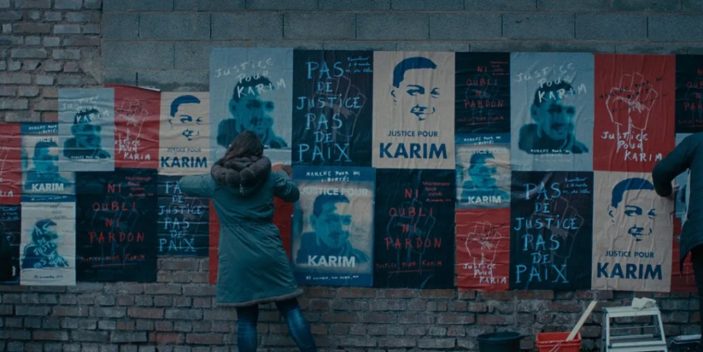
A parallel between the systematic racism towards the Arab community in Europe and the fatalities experienced across the United States during the Black Lives Matter movement, Mehdii Fikri‘s After the Fire is an affective drama that commands conversation.
Though a fictional story, the film’s credits take note that this is “based on the real struggle of many families”, lending Fikri’s narrative a layer of sombre naturality that is, sadly, too familiar for many in this current landscape of racism and police brutality.
The poster boy for such in this film is Karim El Yadiri, a recent victim of enforced savagery that the authorities are claiming was the result of a drug-assisted seizure. His family, however, know better, leading the film on the aftermath narrative as to how they navigate his death and the consequences of whether or not they take legal action against the police involved.
His surviving brother, Driss (Sofiane Zermani), and estranged sister, Malika (Camélia Jordana, an absolute force here), are all too aware of what needs to be done, but in pursuing such they are delaying the burial of Karim’s body, as well as being consistently told that going up against the system is unlikely to bow in their favour; an early scene where the police, hoping to cover their tracks, visit the siblings in an attempt to cool the riots that have escalated in the wake of Karim’s death – where they push their innocence in the matter – only fuels Driss and Malika’s intentions when the police retort, “There’s no point in talking to their kind”, following the family’s rightful questioning of the police’s intentions.
It’s an infuriating scene – one of many – that highlights the abhorrent racism and abuse of power the authorities flex to those they believe are beneath them. After the Fire is consistently a tragic watch – the sequence where the actual events of Karim’s death are relayed is heartbreaking in its subtlety – but that’s what makes it such a necessary piece of cinema. Fikri isn’t trying to sugarcoat the world we live in, nor provide false hope to many others whose stories bare similarities. After the Fire burns in its reality.
Admirably restrained, given its subject matter, and impeccably acted, After the Fire, whilst perhaps too unpleasant for many audiences, is the type of requisite storytelling that should be seen and respected; regardless of whether or not it’s one you personally identity with.
![]()
![]()
![]()
![]()
![]()
FOUR STARS (OUT OF FIVE)
After the Fire is screening as part of this year’s Toronto International Film Festival, running between September 7th and 17th, 2023.
